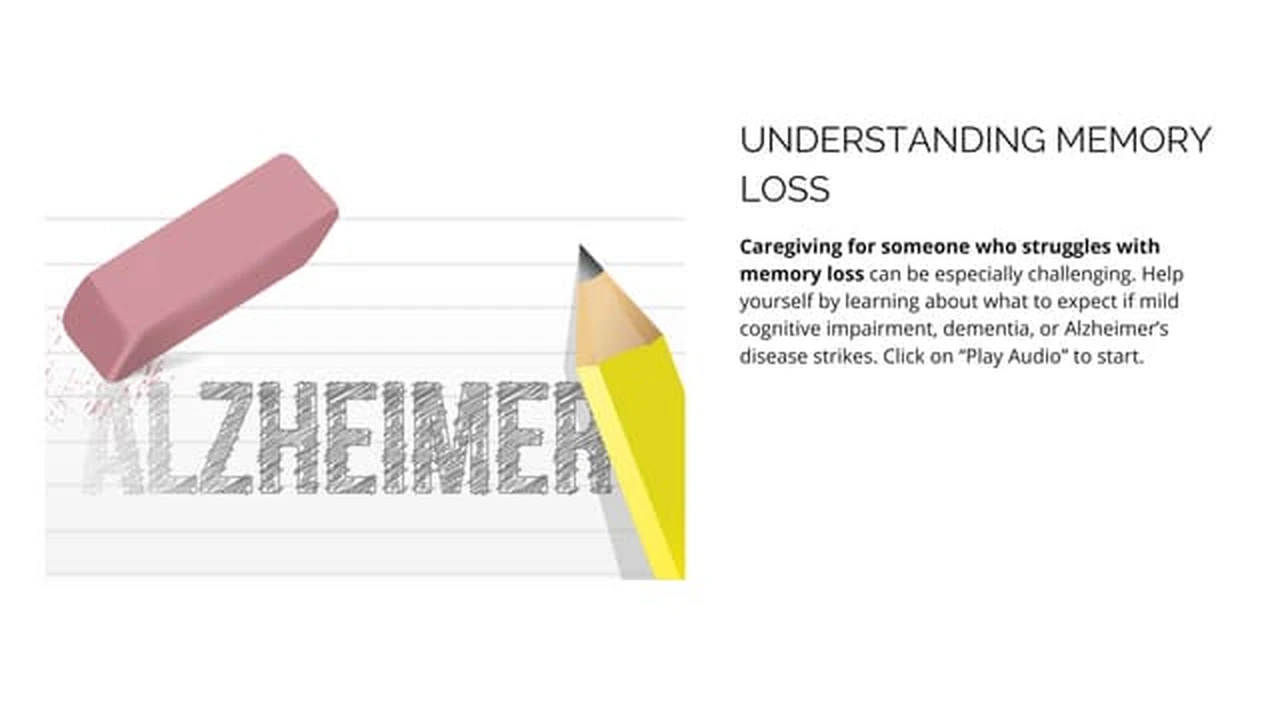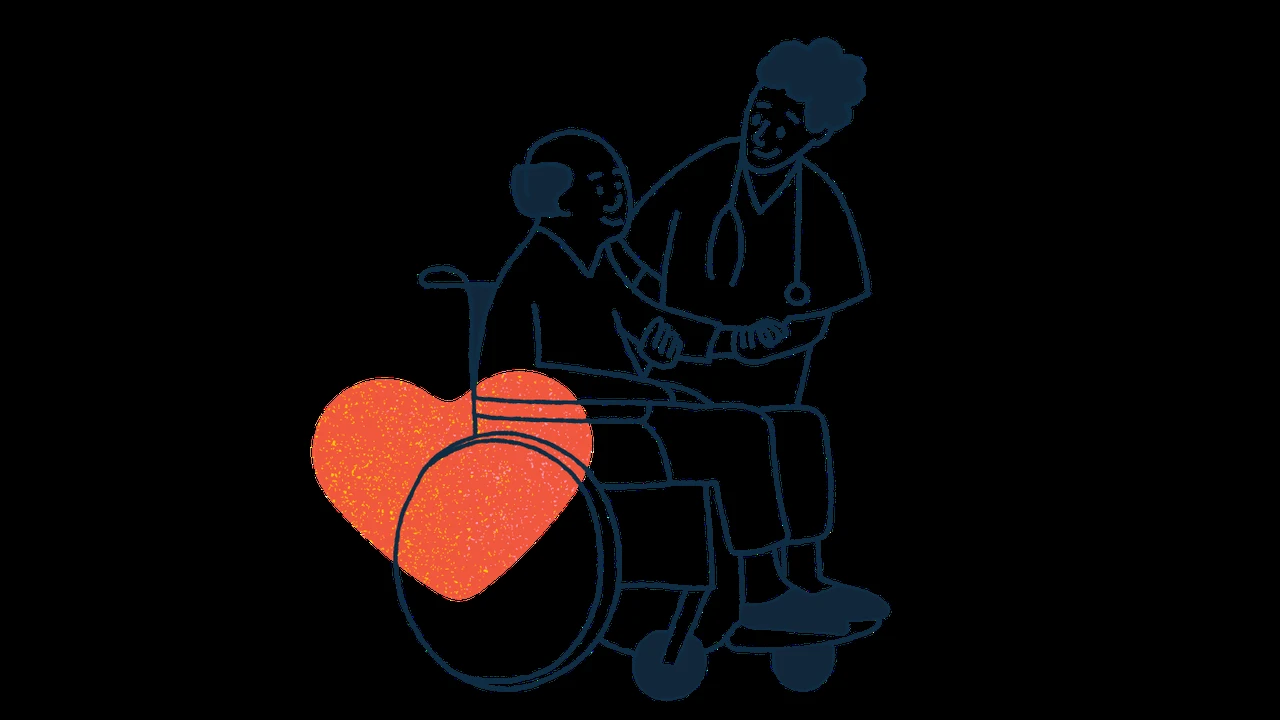7 Benefits of Specialized Memory Care for Dementia
Explore the advantages of dedicated memory care, including tailored programs, secure environments, and trained staff.

7 Benefits of Specialized Memory Care for Dementia
When a loved one receives a dementia diagnosis, it can feel like navigating uncharted waters. The journey is often filled with questions, concerns, and the overwhelming desire to provide the best possible care. While many families initially consider in-home care or general assisted living, there comes a point for many where specialized memory care becomes not just an option, but a vital necessity. This isn't just about a different type of facility; it's about a fundamentally different approach to care, designed specifically for the unique challenges and needs of individuals living with Alzheimer's disease and other forms of dementia. Let's dive into the seven significant benefits that specialized memory care offers, providing peace of mind for families and a higher quality of life for residents.
Benefit 1: Tailored Programs and Activities for Cognitive Engagement
One of the most significant advantages of specialized memory care is the focus on programs and activities specifically designed to engage individuals with cognitive impairment. Unlike general assisted living, where activities might be broader, memory care communities craft daily schedules that cater to varying stages of dementia, focusing on maintaining cognitive function, promoting social interaction, and reducing agitation. These aren't just time-fillers; they are therapeutic interventions.
Personalized Engagement Strategies for Dementia Residents
Imagine a resident who once loved gardening. In a memory care setting, they might participate in a sensory garden program, touching different textures, smelling herbs, and even planting seeds. For someone who enjoyed music, there might be daily sing-alongs, music therapy sessions, or opportunities to listen to familiar tunes. These activities are often led by staff trained in dementia care, who understand how to adapt and modify tasks to ensure success and enjoyment, fostering a sense of accomplishment rather than frustration.
Examples of Effective Memory Care Activities and Their Impact
- Reminiscence Therapy: This involves discussing past events, using old photos, music, or familiar objects to stimulate memories and encourage conversation. It helps residents connect with their past and maintain a sense of identity.
- Art and Music Therapy: These creative outlets can bypass verbal communication difficulties, allowing residents to express themselves and experience joy. Studies show music can significantly reduce anxiety and agitation in dementia patients.
- Sensory Stimulation: Activities involving touch, smell, sight, and sound can be incredibly calming and engaging. This might include aromatherapy, tactile boards, or gentle massages.
- Physical Exercise: Modified exercises like chair yoga, walking groups, or dancing can improve circulation, mood, and sleep patterns, all crucial for dementia management.
- Life Skills Stations: Some communities create stations resembling familiar environments like a kitchen or office, allowing residents to engage in purposeful activities they once performed, fostering a sense of normalcy and independence.
Benefit 2: Secure and Safe Environments for Wandering Prevention
Wandering is a common and dangerous behavior associated with dementia. Individuals may become disoriented, leave the facility, and put themselves at risk. Specialized memory care communities are meticulously designed with safety and security as paramount concerns, offering peace of mind that simply isn't possible in a typical home or general assisted living setting.
Architectural Design and Safety Features in Memory Care Facilities
These facilities often feature secure perimeters, alarmed doors, and enclosed outdoor spaces that allow residents to enjoy fresh air without the risk of wandering off. The layout itself is often designed to be intuitive, with clear signage, circular pathways that lead back to a central point, and minimal confusing corridors. This thoughtful design reduces anxiety and promotes a sense of freedom within a safe boundary.
Technology and Staff Training for Enhanced Resident Safety
Beyond physical design, technology plays a crucial role. Many communities utilize discreet monitoring systems, wearable GPS devices, or pressure-sensitive mats that alert staff if a resident attempts to leave their room at night. More importantly, staff are extensively trained in de-escalation techniques and how to gently redirect residents who are attempting to wander, ensuring their safety without resorting to restrictive measures.
Benefit 3: Highly Trained and Compassionate Staff for Dementia Care
Caring for someone with dementia requires a unique skill set and a deep understanding of the disease's progression. Specialized memory care facilities employ staff who are not only compassionate but also extensively trained in dementia care best practices.
Specialized Training and Expertise in Dementia Management
This training goes beyond basic caregiving. It includes understanding the different stages of dementia, recognizing behavioral changes as communication, and implementing strategies to manage challenging behaviors like agitation, aggression, or sundowning. Staff learn how to communicate effectively with individuals who may have difficulty expressing themselves, using techniques like validation therapy and redirection.
The Importance of a Consistent Care Team for Residents
Consistency in caregivers is also a hallmark of good memory care. Residents with dementia thrive on routine and familiarity. A consistent care team allows residents to build trust and rapport, reducing anxiety and making daily transitions smoother. This stability is invaluable for both the resident and their family.
Benefit 4: Structured Routines and Predictable Environments for Stability
For individuals with dementia, a predictable routine can be incredibly comforting and grounding. Specialized memory care communities excel at providing structured daily schedules that reduce confusion and anxiety.
How Routine Benefits Individuals with Cognitive Impairment
A consistent schedule for meals, activities, personal care, and rest helps residents anticipate what comes next, minimizing surprises that can trigger agitation. This predictability fosters a sense of security and control, even as cognitive abilities decline. It also helps regulate sleep patterns, which are often disrupted in dementia.
Examples of Daily Schedules in Memory Care Settings
A typical day might involve a set time for waking and breakfast, followed by morning activities like light exercise or reminiscence therapy. After lunch, there might be a quiet period or individual engagement, followed by afternoon activities, dinner, and a calming evening routine leading to bedtime. While flexible, the underlying structure remains constant, providing a stable framework for daily life.
Benefit 5: Nutritional Support and Dining Experiences for Health
Maintaining proper nutrition can be a significant challenge for individuals with dementia. Changes in appetite, difficulty with utensils, swallowing issues, or simply forgetting to eat are common. Memory care communities address these challenges with specialized approaches to dining.
Addressing Unique Dietary Needs of Dementia Patients
Meals are often served in smaller, more manageable portions, and staff are trained to assist residents discreetly and patiently. Foods may be adapted for easier chewing and swallowing, and finger foods are often available for those who struggle with cutlery. Hydration is also a key focus, with drinks offered frequently throughout the day.
Creating a Positive and Supportive Dining Environment
The dining environment itself is carefully considered. It's often calm, quiet, and free from distractions, encouraging residents to focus on their meal. Staff sit with residents, offering encouragement and assistance, turning mealtime into a social and supportive experience rather than a stressful one. Some communities even offer 'comfort food' options that evoke positive memories.
Benefit 6: Social Interaction and Community Engagement for Well-being
Isolation can accelerate cognitive decline and lead to depression in individuals with dementia. Specialized memory care provides a built-in community, fostering social interaction and a sense of belonging.
Combating Isolation and Promoting Peer Connections
Residents are surrounded by peers who understand their experiences, reducing feelings of loneliness and misunderstanding. Group activities, communal meals, and shared spaces encourage interaction, even for those with limited verbal communication. Staff facilitate these connections, ensuring everyone feels included and valued.
Family Involvement and Support Networks in Memory Care
Memory care communities also understand the importance of family. They often host family support groups, educational workshops, and special events, creating a network of support for both residents and their loved ones. This holistic approach recognizes that dementia affects the entire family unit.
Benefit 7: Peace of Mind for Families and Caregivers
Perhaps one of the most profound benefits of specialized memory care is the peace of mind it offers to families and primary caregivers. The emotional and physical toll of caring for a loved one with dementia can be immense. Memory care allows families to transition from being full-time caregivers to being loving family members again.
Reducing Caregiver Burnout and Stress
Knowing that a loved one is in a safe, supportive, and expertly managed environment alleviates the constant worry and stress that often accompanies home care for dementia. Families can rest assured that their loved one's complex needs are being met by professionals, allowing them to focus on quality time and emotional connection.
Focusing on Quality Time and Emotional Connection
Instead of spending visits managing medications, preparing meals, or dealing with challenging behaviors, families can simply enjoy their time with their loved one, engaging in meaningful conversations, sharing laughter, and creating new memories. This shift in roles is incredibly beneficial for everyone involved, strengthening family bonds rather than straining them.
Recommended Products and Technologies for Enhanced Memory Care
While specialized memory care facilities provide comprehensive support, certain products and technologies can further enhance the well-being and safety of individuals with dementia, both within a facility and during the transition period. Here are a few categories and specific examples, along with their typical use cases and price ranges.
Smart Home Devices for Safety and Routine Support
These devices can be integrated into memory care units or used in a home setting before transitioning. They offer discreet monitoring and routine assistance.
-
Google Nest Hub Max:
- Use Case: Can display large-font clocks, calendar reminders for meals or activities, and video calls with family. Its camera can be used for discreet check-ins by staff (with consent). Voice commands can play calming music or answer simple questions.
- Comparison: Offers a larger screen and better sound than smaller smart displays. Integrates well with other Google smart home devices.
- Price: $180 - $230
-
Amazon Echo Show 8:
- Use Case: Similar to Nest Hub, provides visual reminders, video calls, and voice-activated music. Can be set up with 'routines' for morning or evening activities.
- Comparison: Generally more affordable than Nest Hub Max, with a slightly smaller screen. Strong integration with Amazon services.
- Price: $100 - $130
GPS Trackers for Wandering Prevention and Location Monitoring
These devices are crucial for individuals prone to wandering, offering real-time location tracking and geofencing capabilities.
-
AngelSense GPS Tracker for Dementia:
- Use Case: Worn as a watch or attached to clothing, it provides real-time GPS tracking, geofencing alerts (e.g., if the wearer leaves a designated safe zone), and even voice monitoring. Designed specifically for vulnerable individuals.
- Comparison: More robust and feature-rich than standard consumer GPS trackers, with a focus on safety and ease of use for caregivers. Requires a monthly subscription.
- Price: Device $100 - $200, Monthly Subscription $30 - $50
-
Jiobit Smart Tag:
- Use Case: A small, discreet tracker that can be clipped to clothing or worn in a pocket. Offers real-time location, geofencing, and can be tracked via a smartphone app.
- Comparison: Smaller and less conspicuous than some dedicated dementia trackers, making it suitable for those who might resist wearing a more obvious device. Also requires a monthly subscription.
- Price: Device $100 - $150, Monthly Subscription $10 - $15
Therapeutic Aids and Sensory Stimulation Products
These products help engage residents, reduce agitation, and provide comfort.
-
Fidget Blankets/Muffs:
- Use Case: Designed with various textures, zippers, buttons, and small objects to provide sensory stimulation and keep restless hands busy. Can reduce anxiety and provide a calming effect.
- Comparison: Many variations exist, from simple lap blankets to more complex muffs. Look for durable, washable materials and a variety of engaging elements.
- Price: $20 - $50
-
Therapeutic Dolls/Pets:
- Use Case: Realistic-looking dolls or robotic pets (like Joy for All Companion Pets) can provide comfort, reduce loneliness, and stimulate nurturing instincts in some individuals with dementia.
- Comparison: Robotic pets offer interactive features like purring or barking, making them more engaging for some. Dolls are simpler but can still provide comfort.
- Price: Dolls $30 - $70, Robotic Pets $100 - $150
-
Memory Lane Music Player:
- Use Case: A simple, easy-to-operate music player pre-loaded with familiar songs from a specific era. Music can evoke memories, improve mood, and reduce agitation.
- Comparison: Designed specifically for ease of use for individuals with dementia, often with large buttons and no confusing menus, unlike standard MP3 players.
- Price: $80 - $120
Adaptive Dining Aids for Nutritional Support
These tools can make mealtime easier and more dignified for individuals with fine motor skill challenges or swallowing difficulties.
-
Weighted Utensils (e.g., Liftware Steady):
- Use Case: Designed to counteract tremors, making it easier for individuals with Parkinson's or other conditions affecting motor control to eat independently.
- Comparison: Basic weighted utensils are affordable, while advanced options like Liftware use technology to stabilize.
- Price: Basic $15 - $30 per utensil, Liftware Steady $200 - $300
-
Dignity Plates and Bowls:
- Use Case: Plates with high sides or suction bases prevent food from spilling and make it easier to scoop. Bowls with sloped bottoms help gather food.
- Comparison: Many brands offer similar features. Look for non-slip bases and microwave/dishwasher safe materials.
- Price: $10 - $25 per item
Considering Memory Care in the USA vs. Southeast Asia
When exploring memory care options, families in the USA and Southeast Asia face different landscapes, costs, and cultural considerations.
Memory Care Landscape in the USA
In the USA, memory care is a well-established sector within senior living. There's a wide range of facilities, from dedicated memory care wings within assisted living communities to standalone memory care centers. Regulations vary by state but generally ensure a baseline of care and safety. Costs are significant, often ranging from $4,000 to $8,000+ per month, depending on location, level of care, and amenities. Payment typically comes from private funds, long-term care insurance, or sometimes Medicaid for those who qualify.
Emerging Memory Care Options in Southeast Asia
Southeast Asia is seeing a growing interest in senior care, including memory care, driven by an aging population and increasing affluence. Countries like Thailand, Malaysia, and Singapore are developing facilities that often blend Western care standards with local cultural practices. These can sometimes offer a more affordable alternative to Western countries, with costs potentially ranging from $2,000 to $5,000+ per month, though luxury options can be much higher. The cultural emphasis on family care remains strong, but professional memory care is gaining traction, often attracting expatriates or those seeking more specialized care than traditional family structures can provide. Language barriers and differing regulatory frameworks are important considerations when exploring options in this region.
Ultimately, the decision to choose specialized memory care is a deeply personal one, often made after careful consideration of a loved one's evolving needs and the family's capacity to provide adequate support. The benefits outlined above highlight why, for many, this dedicated environment offers the best possible quality of life and care for individuals living with dementia.
:max_bytes(150000):strip_icc()/277019-baked-pork-chops-with-cream-of-mushroom-soup-DDMFS-beauty-4x3-BG-7505-5762b731cf30447d9cbbbbbf387beafa.jpg)






